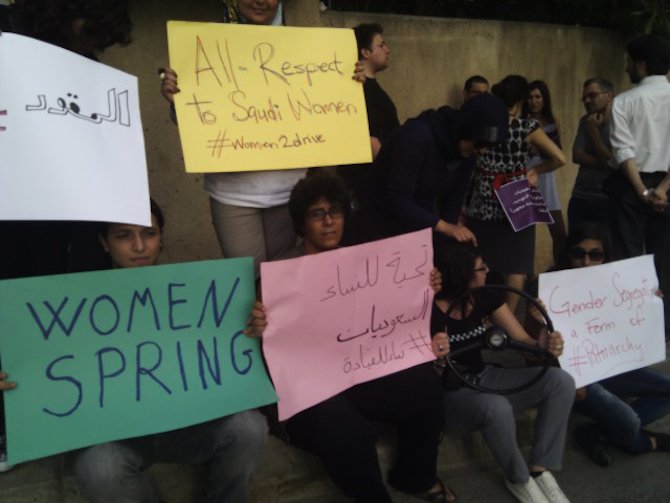Saudi Arabia has not had the best record on women’s rights.
In fact, it may be one of the worst places in the world to be a woman. It is the only country where women are prohibited from driving, and women are required to be accompanied by a male chaperone in public at all times.
This is all due to the system of government in Saudi Arabia, an Islamic-based monarchy that follows Sharia Law. In 1960 King Faisal declared the Quran the official constitution of Saudi Arabia, laying the groundwork for the subjugation of women. This decree created an uncodified system, meaning the official law is often based on traditional customs, and interpretation of the law is left to religious judges. Sharia is often considered one of the strictest forms of Islam, governing everything from business to hygiene, and is notoriously oppressive to women.

However, in the past ten years, women have slowly been fighting back.
In 2011, the late King Sultan bin Abdulaziz Al Saud granted women the right to vote and participate in municipal elections. This was praised as forward thinking, but there was an air of reservation as the next elections wouldn’t be until 2015, and many wondered if it would even happen.
Fast forward to 2015, and it’s finally happening. More than 1,000 women have nominated
themselves across the country since the end of August, significantly more than expected, but there are worries about how the election will go.
“I’m not excited by the idea of winning,” said Loujain al-Hathloul in an interview with the Telegraph. Al-Hathloul, who spent 73 days in prison earlier this year for participating in the women’s right to drive protests, is the Number 1 candidate for Riyadh District 5. “I’m focussed on increasing the number of women who stand in elections,” she said. One woman gaining office would be a triumph. But each additional seat multiplies the impact of the victory.
While all this is a huge step for women’s rights in Saudi Arabia, there is still a long way to go.

The local elections, which are only the third in the country’s history, are extremely limited, and the restrictions on women candidates are even more so.
Women’s election pamphlets can’t contain photographs, and due to Sharia Law’s prohibition of women speaking to men that they’re not related to, women are forbidden from addressing men at campaign meetings. Because women are required to have a chaperone when they leave the house, campaigning can be almost impossible, and due to the ban on women driving, they’ll need rides to the polls on election day.
Women also need ID cards to vote, and while in principle Saudi women can obtain ID cards without anyone’s permission, regulation on women’s movement and the systematic guardianship required make it extremely difficult.
Once a woman is elected, the restrictions continue. Council chambers are segregated, meaning men and women caucuses are completely separate, and men and women are required to enter through different doors so the genders don’t mix.
How can dialogue on gender rights happen in such an environment?
Though the rules and stipulations are daunting, these elections are a good start. In 2013 a royal decree was issued introducing a 20 percent quota for women on the Shura Council, the King’s advising assembly. But clearly more needs to be done.
Women are just as capable, intelligent, and equal as men; and just as deserving of inalienable rights. With steps like these elections, maybe women across the world will finally be treated as equals.
Go to TAKE ACTION NOW to sign a petition prioritizing worldwide gender equality